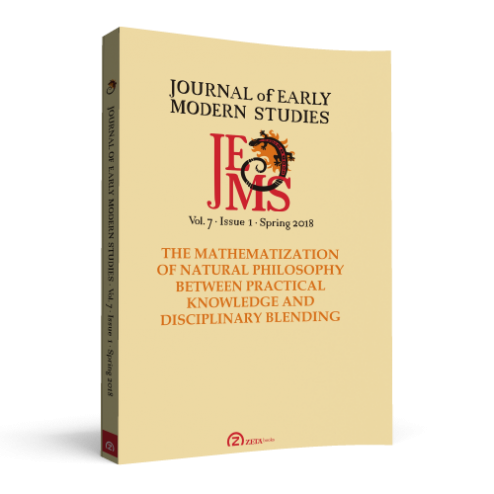“Nature Doth Not Work by Election”:
“Nature Doth Not Work by Election”:
John Wallis, Robert Grosseteste, and the Mathematical Laws of Nature
Author(s): Adam D. RichterSubject(s): Philosophy, Early Modern Philosophy
Published by: Zeta Books
Keywords: John Wallis; Robert Grosseteste; history of science; mathematization of nature; laws of nature; seventeenth century; experimental philosophy; optics;
Summary/Abstract: Though he is known primarily for his mathematics, John Wallis (1616–1703) was also a prominent natural philosopher and experimentalist. Like many experimental philosophers, including his colleagues in the Royal Society, Wallis sought to identify the mathematical laws that govern natural phenomena. However, I argue that Wallis’s particular understanding of the laws of nature was informed by his reading of a thirteenth–century optical treatise by Robert Grosseteste, De lineis, angulis et figuris, which expresses the principle that “Nature doth not work by Election.” Wallis’s use of this principle in his Discourse of Gravity and Gravitation (1675) helps to clarify his understanding of natural laws. According to Wallis, since nature cannot choose to act one way or another, natural phenomena are unfailingly regular, and it is this that allows them to be predicted, generalized, and described by mathematical rules. Furthermore, I argue that Wallis’s reading of Grosseteste reveals one way that medieval scholarship contributed to the “mathematization of nature” in the early modern period: historically–minded scholars like Wallis found insightful philosophical principles in medieval sources, and they transformed and redeployed these principles to suit the needs of early modern natural philosophy.
Journal: Journal of Early Modern Studies
- Issue Year: 7/2018
- Issue No: 1
- Page Range: 47-72
- Page Count: 26
- Language: English
- Content File-PDF

